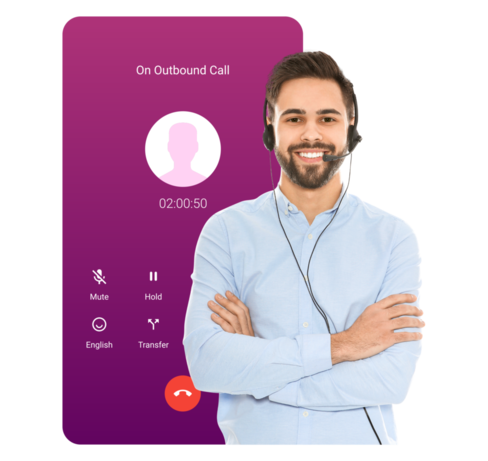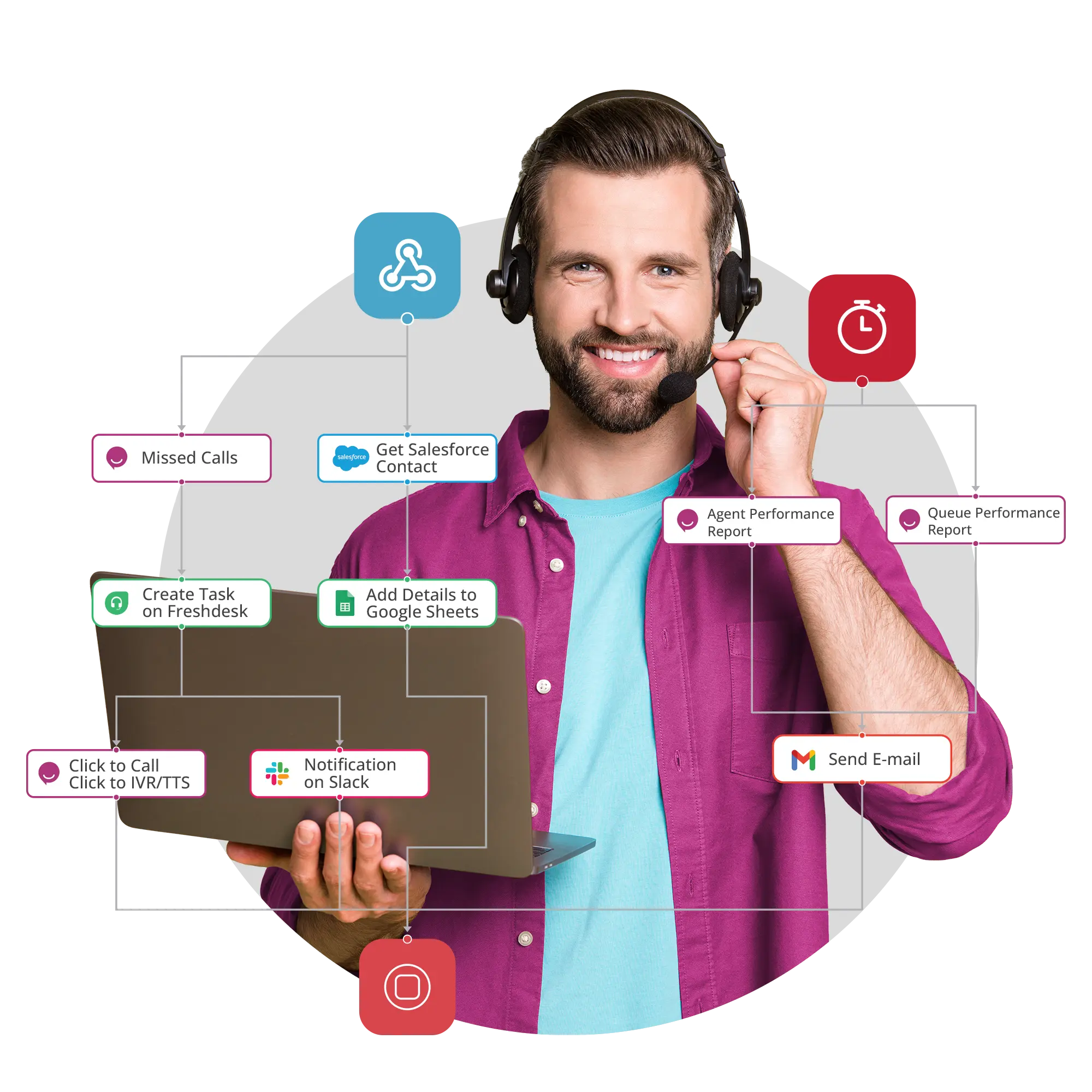Published the Sep 23, 2021
What is Average Handle Time (AHT)?
Average handle time AHT is an important call center metric that shows how much time, on average, it takes agents to resolve customer issues!
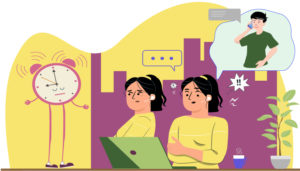
Call centers play a significant role in how customers interact with a company, and it’s vital for businesses because Lower Average Handle Time generally translates into lower after-call work and lower hold times, with this in mind, that will have a positive impact on customer experience, agent productivity, and the overall contact center efficiency.
A key feature of modern contact centers is customer focus. With the help of support services, companies seek to improve customer experience and increase the loyalty of partners, buyers, or service users. Motivation and training have become guidelines for working with personnel. A simplified approach to reducing the average call processing time does not fit into this concept. However, it would be wrong to refuse to measure and analyze AHT. There are effective ways to use this indicator to achieve a new level of development of the unit.
So, in other words, you can guarantee on-call customer satisfaction by reducing the Average Handle Time (AHT). To put it differently, let us dive into more details about the definition of Average Handle Time, and why this KPI has a large impact on customer satisfaction and the overall efficiency of any contact center.
Average Handle Time in Call Centers metric
The Average Handling Time (AHT) is an important metric in every call center, and it’s considered to compute the absolute timeframe from the beginning of the conversation with the client over the phone, until the end of the interaction with the client, and that’s including the Average Talk Time (ATT), the Average Hold Time (AHLDT), also the After Call Work (ACW).

To determine the average handle time that it takes for an agent to serve a customer, then we should speak about these 3 components:
1) Average Talk Time (ATT)
Average Talk Time is the average time a call center agent spends talking to a client.
2) Average Hold Time (AHLDT)
Average Hold Time is the measure of time a client waits on hold when a call center agent tries to recover data, address an administrator, or transfer the client to someone else or a different department. In this case, Low Average Hold Time can improve consumer loyalty.
3) After Call Work (ACW)
After Call Work (ACW) is also known as Wrap Time or Post-Call Process, is the work or tasks call center agents put in after speaking to a customer, and it measures the length of time it takes an agent to do the work associated with a call after it’s done.
Why Average Handle Time (AHT) is among the most important KPIs to monitor call center performance?
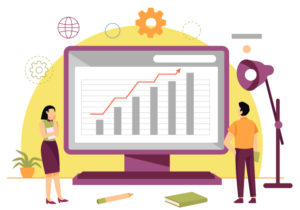
Average Handle Time is one of the top important key performance indicators (KPI) that is used in every call center, and this KPI you should never ignore. In fact, many call centers try their best and use multiple approaches to lower their AHT, from investing in the best Cloud Call Center Software Solution, providing advanced training for their call center agents, revolutionizing their business by WhatsApp, establishing a great knowledge base, and a lot more.
The lower Average Handle Time gets, will not only allow contact centers to handle more phone calls and enhance their Customer Service Average Rate CSAT, but it will also help in portraying a better brand image for the company, also it will help improve customer satisfaction and business growth.
How to calculate (AHT) Calculation Formula? Calculating AHT
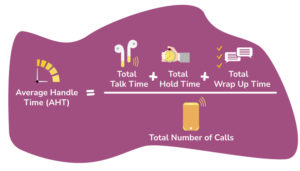
So if the agent received one call, and he spends 200 seconds in a conversation with the client and then spends another 100 seconds typing notes into a system once the customer has disconnected, then the Average Handle Time is 300 seconds.
What are the key points to reducing Average Handling Time (AHT)?
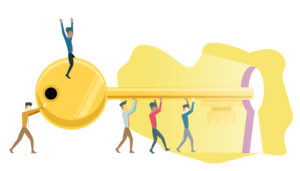
1) Creating a Great Knowledge Base
The knowledge base is a significant source of information that call center agents can rely on to improve their AHT. The knowledge base will provide an easy-to-use platform that enables agents to seek information and ask questions in a short amount of time.
This database should be promptly updated with all the necessary data (about customers, goods, operations, etc.). Each employee should have quick access to the necessary data. This reduces the time to search for the required information and allows you not to be distracted when significantly communicating with the client.
2) Coaching Agents
Agents need to be well trained to be familiar with the all tools used in the contact center before starting their interactions with clients.
Basic training is only the first step towards acquiring high qualifications. In order to improve performance indicators, it is necessary, in addition to basic training, to conduct regular training. Operators need to be helped with the analysis of working situations and encouraged to share experiences within the team. All this will help employees work on optimizing AHT while maintaining and improving customer service levels.
3) Using Advanced Contact Center Software
Advanced contact center technology will help the agents perform their duties in a better way, and it will help achieve the KPI’s on hand:
A. IVR Technology (Interactive Voice Response technology)
The IVR service enables contact centers to record automated voicemail messages and routing calls. You can use IVR also in other aspects of business such as website, database and CRM integration, reporting, and bill processing. It’s easy to implement you can scale it up as per your growth easily. Hence, you will be able to reduce your time and the overall AHT of the contact center.
B. Smart Routing Technology
Improve your service response time and connect your customer with the right agent automatically with real-time quality of service analysis. Smart Routing Technology Improves communication with clients by automatically answering calls and directing them to the individual, extension, or department based on the rules and criteria you set. With call routing, people can reach the right person or department they need in the blink of an eye, and that will guarantee to make AHT even shorter.
This is a simple and win-win way to reduce call processing time. Thanks to an optimized routing system, subscribers have to wait less in the call queue. In addition, it allows you to immediately connect a person with a competent specialist, without additional transitions.
C. CRM Integrations
Connecting your contact center software with a CRM system will improve the workflow and shorten the AHT.
Why Do You Need to Make A Balance Between AHT and Customer Satisfaction?
Improving average call handling time is just one of the building blocks of a productive call center. However, this is an important indicator that contributes to the development of the support service in several aspects at once.
First of all, smart AHT optimization improves customer satisfaction. By improving this parameter, the contact center gets rid of such annoying things as long queues, call forwarding, and long pauses. Issues are resolved faster and more successfully, which, of course, can only please.
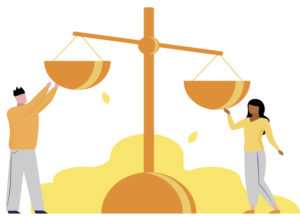
AHT is a tricky metric, the lower the number of AHT, the better your organization is doing at serving clients. That means the agents are helping clients efficiently in a reasonable amount of time.
Optimization of The Entire Workflow
Employee monitoring, call analytics, and real-time assistance contributes to increased productivity. It is worthwhile to ensure fast and efficient internal communication between employees. A good solution would be to create an internal chat that allows you to exchange instant messages. Finally, automating most repetitive, routine tasks helps increase productivity.
In addition, the improvement of AHT automatically implies an increase in work efficiency. Moreover, in different directions – from improving the skills of employees to automating work processes. Some of these activities require an initial financial investment. However, they certainly pay off and provide the company with long-term profits.
On the other hand, sometimes a low AHT might mean that the agents are rushing the calls and they’re not resolving the client’s problems. This is why you need to beware of warning signs that AHT is too low, and take action to bring a greater sense of balance to all the areas of the contact center KPIs.
TRY ZIWO Cloud-Based Call Center — 14-day free trial
Try and take a closer look at ZIWO platform which helps enterprises accelerate their performance along with a better customer experience.
Related Posts: Check our blog about FCR (First Call Resolution),
https://www.ziwo.io/on-premise-call-centers-vs-cloud-based-call-centers/
Readings
Latest News
Interviews, tips, guides, industry best practices, and news.
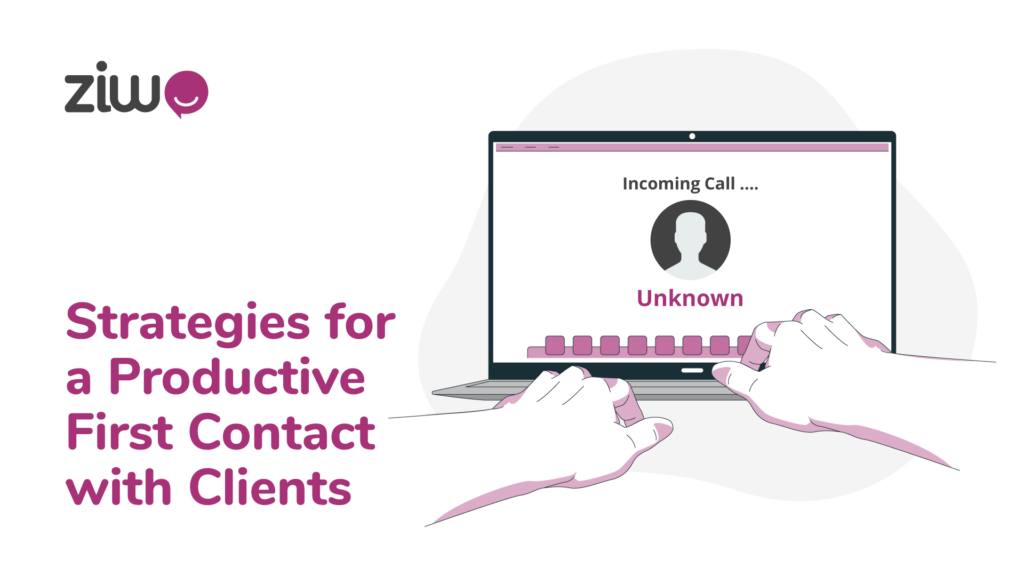
Strategies for a Productive First Contact with Clients
Take time to focus on the First Contact with Clients, so you can adjust the customer experience (CX) strategy to provide the best service.
Read post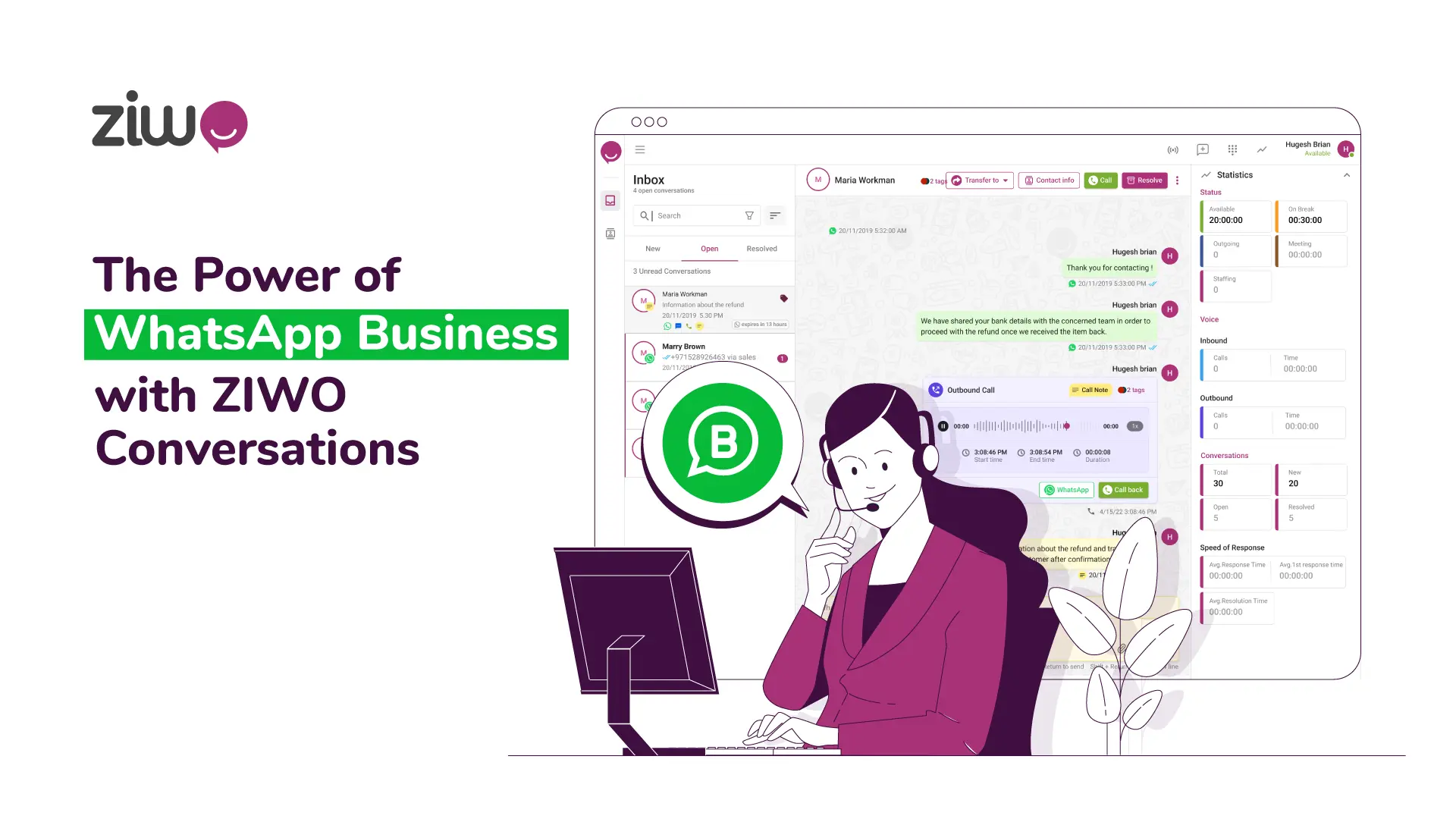
The Power of WhatsApp Business with ZIWO Conversations
ZIWO Conversations is recognized as the premier WhatsApp Business Companion, elevating both customer experiences and team collaboration to a higher standard.
Read post
Pause and Resume Call Recording – Benefits & Industries
agents can manually pause and resume call recordings, Once an administrator has enabled the feature, agents will see a button on the dialpad
Read post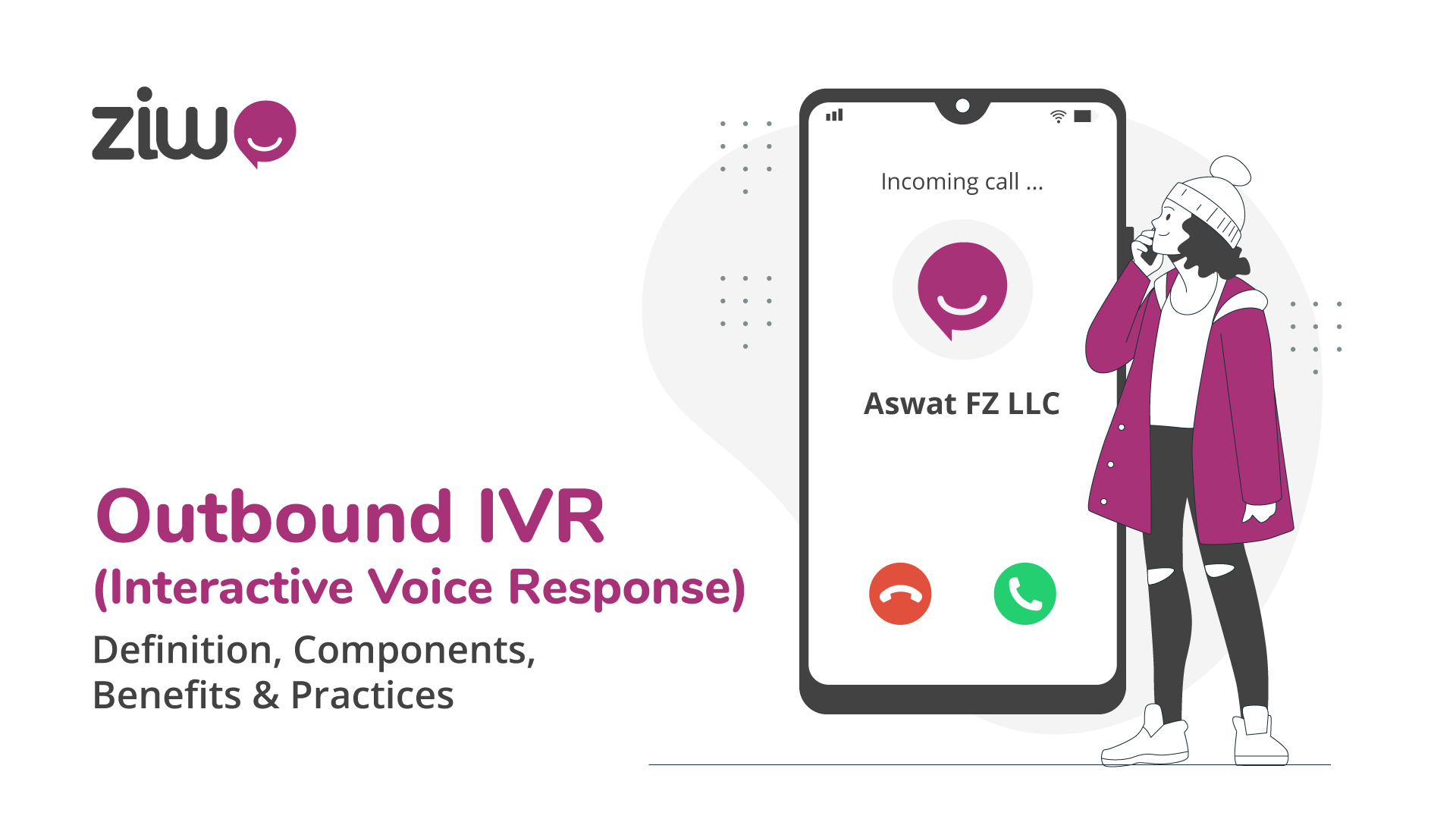
Outbound IVR (Interactive Voice Response) – Definition, Components, Benefits & Practices
Outbound IVR feature is a contact center tool that is used to proactively distribute communications to customers with a predefined IVR menu.
Read post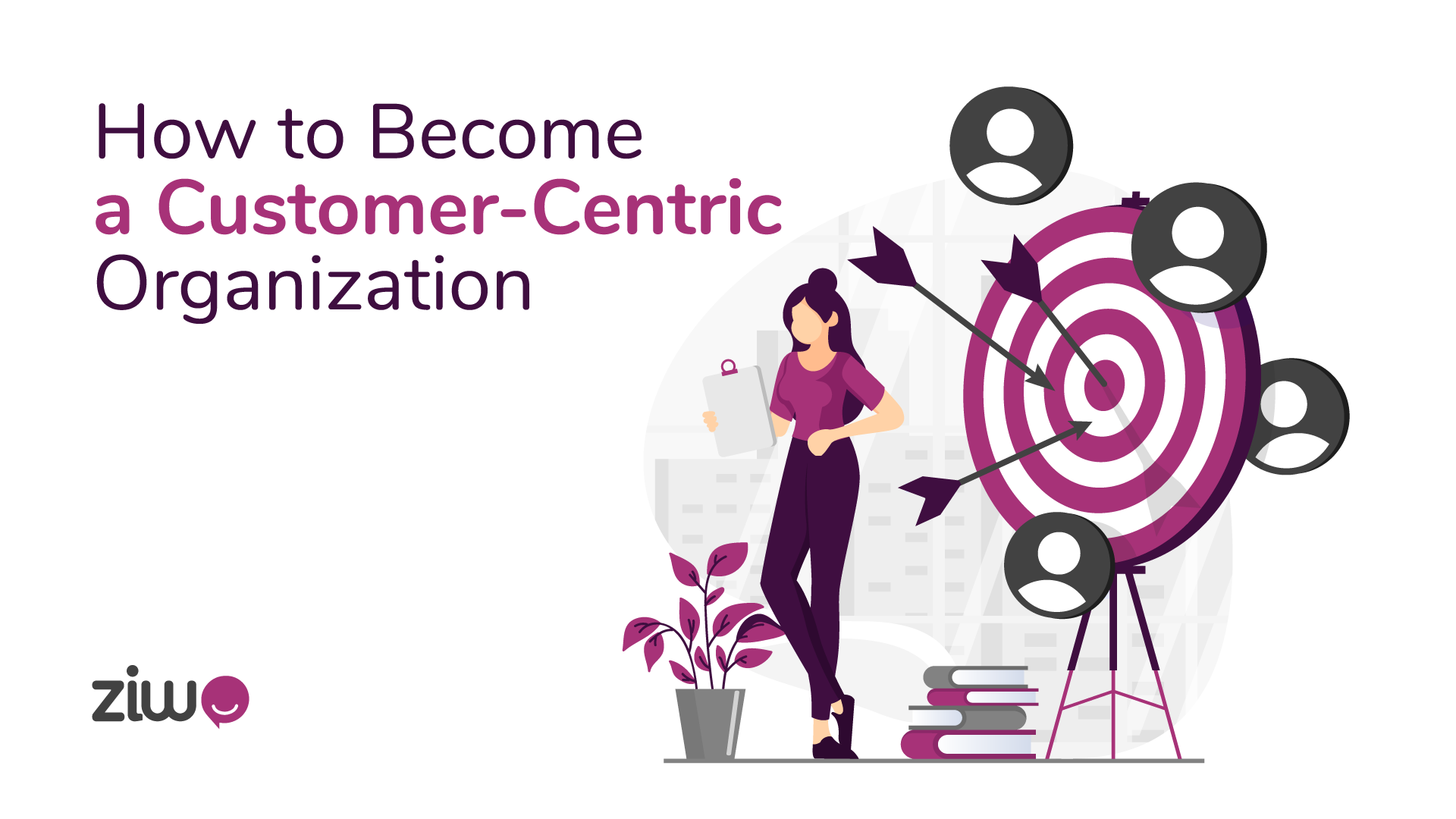
How to Become a Customer-Centric Organization
Ways to Build a customer-centric culture in your company, customer-centricity needs to be part of your philosophy, values, and mission daily.
Read post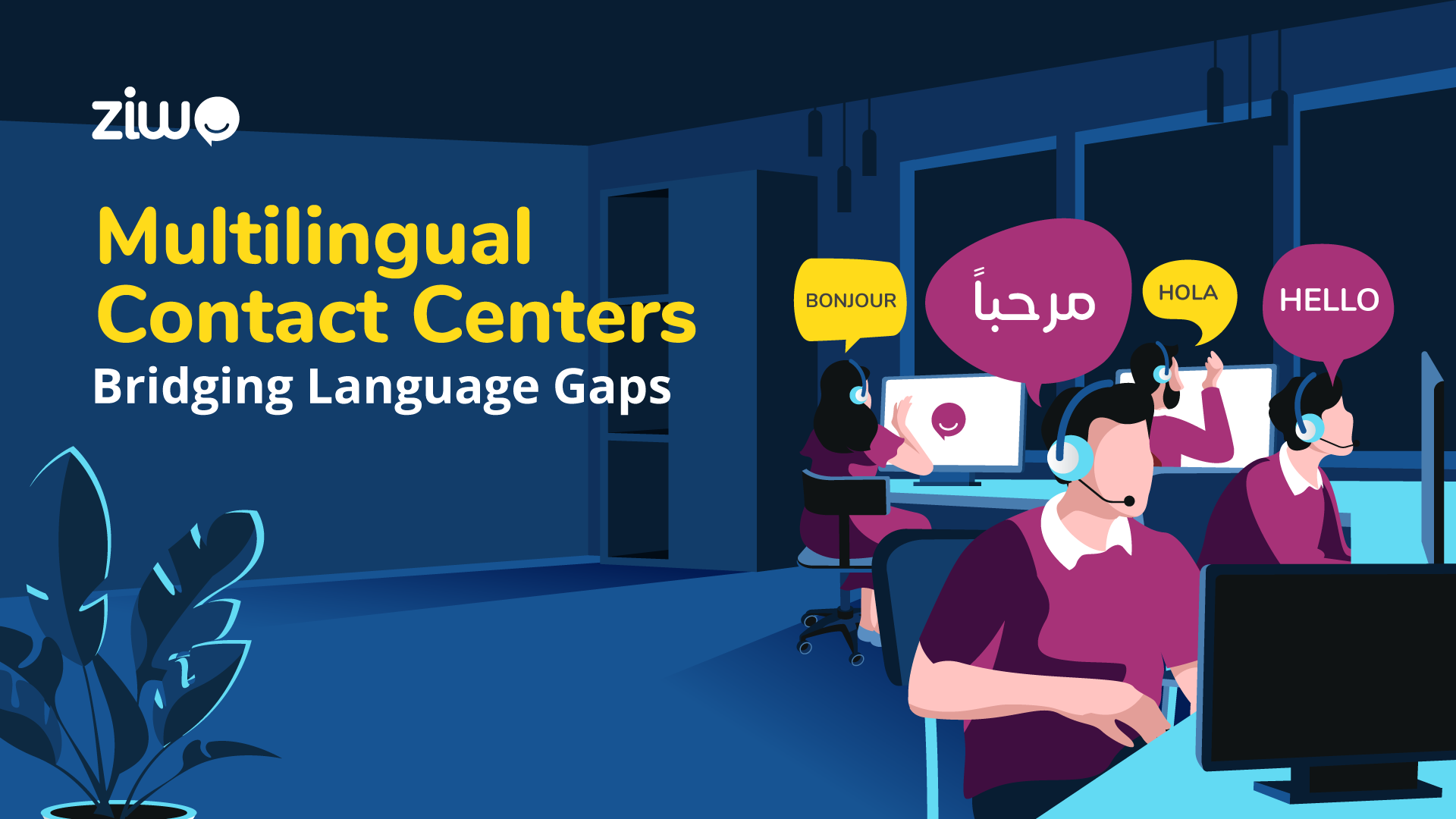
Multilingual Contact Centers: Bridging Language Gaps
Discover how multilingual contact centers overcome language barriers to deliver outstanding assistance, thereby elevating customer experience
Read post